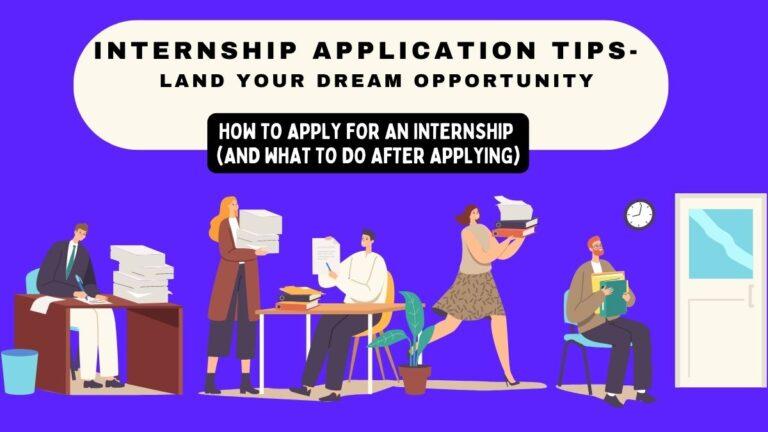10 HUGE Career Challenges fresh engineering graduates are facing in 2023
Career challenges fresh engineering graduates

2023 is shaping up to be a tough year for fresh engineers. Career challenges fresh engineering graduates that they are facing are immense. need to be resilient to face a competitive job market and adapt to new technologies and industry changes. They must also develop essential professional skills, such as communication, time management and leadership. And on top of all that, they must continuously learn and upskill to stay relevant. Overcoming these challenges requires a combination of hard work, determination and a willingness to learn and grow.
Let’s dive deeper & discuss each challenge threadbare –
- Limited job opportunities due to the economic downturn and automation: The current economic downturn has led to a decrease in the number of job opportunities available for engineering freshers. Additionally, the increasing use of automation in various industries has also led to fewer job opportunities for engineers.
- Strong competition for entry-level positions: With an increasing number of engineering graduates entering the job market, there is a high level of competition for entry-level positions. This can make it difficult for freshers to secure a job.
- Limited industry experience and lack of practical skills: Many engineering freshers have limited industry experience and lack the practical skills required by employers. This can make it difficult for them to secure a job or advance in their careers.
- Difficulty in transitioning from an academic to a professional work environment: The transition from an academic to a professional work environment can be challenging for engineering freshers. They may find it difficult to adapt to the fast-paced and deadline-driven nature of the industry.
- Difficulty in understanding the expectations and requirements of the industry: Engineering freshers may find it difficult to understand the specific expectations and requirements of the industry they are entering. This can make it difficult for them to secure a job or advance in their careers.
- Difficulty in building a professional network: Engineering freshers may find it difficult to build a professional network. This can make it difficult for them to learn about job opportunities or get advice from experienced professionals.
- Limited understanding of the job market and available opportunities: Engineering freshers may have a limited understanding of the job market and the available opportunities. This can make it difficult for them to find a job that is a good fit for their skills and interests.
- Limited understanding of the job requirements and how to apply: Engineering freshers may have a limited understanding of the specific requirements of a job and how to apply for it. This can make it difficult for them to secure a job or advance in their careers.
- Limited understanding of the expectations of the employer: Engineering freshers may have a limited understanding of the specific expectations of an employer. This can make it difficult for them to secure a job or advance in their careers.
10. Limited understanding of the industry and emerging technologies: Engineering freshers may have a limited understanding of the industry and emerging technologies. This can make it difficult for them to stay current and competitive in the job market.
1 :- Limited job opportunities due to the economic downturn and automation:-
In the Indian context, the current economic downturn has led to a decrease in the number of job opportunities available for engineering freshers. The COVID-19 pandemic has had a major impact on the Indian economy, leading to a slowdown in various industries, including manufacturing and services. This has led to a decrease in the number of job opportunities available for engineering freshers, as companies are cutting costs and slowing down their hiring processes.
However, there are still some ways that engineering freshers can make themselves more attractive to potential employers. One way is by developing a strong online presence and showcasing their skills and abilities online. Another way is by networking with people who are already working in their desired field and asking for advice on how to get started.
The job market for engineers in India is becoming increasingly competitive, as the number of job opportunities decreases and the amount of automation in various industries increases. Tasks that were once done by engineers are now being completed by machines, leading to a decreased demand for engineers overall. Consequently, engineering freshers face strong competition when applying for limited available positions.
2- Strong competition for entry-level positions:-
There’s no denying that the job market is competitive, especially for engineering graduates. With more and more candidates vying for a limited number of open positions, employers have their pick of the bunch. This can make it tough for freshers to get their foot in the door.
But it’s not impossible. Freshers can stand out from the pack by working hard to demonstrate their value and qualifications to potential employers. By doing this, they’ll show that they’re the best candidate for the job – and that they’re worth hiring, even in a competitive market. Additionally, freshers may need to be willing to accept lower pay or less desirable positions initially, as they work to gain experience and build their resumes. Overall, the strong competition for entry-level positions in engineering can make it difficult for freshers to start their careers.
3. Limited industry experience and lack of practical skills:-
Engineering freshers may lack the practical skills required by employers, which can be a significant disadvantage in the job market. Employers often prefer candidates with relevant industry experience and practical skills, as engineering work often requires hands-on knowledge and experience with specific tools, techniques, and processes. Without this experience, freshers may find it difficult to understand and apply the concepts they learned in school to real-world situations.
Although having a lack of practical skills may make it difficult for freshers to secure a job, there are many ways to overcome this challenge. For example, freshers can brush up on their skills by taking relevant courses or completing internships. Additionally, freshers can highlight their other strengths and qualities, such as being eager to learn and adaptable. By taking these steps, freshers can make themselves more competitive and demonstrate to employers that they have the potential to excel in their roles.
4:- Difficulty in transitioning from an academic to a professional work environment:
The transition from an academic environment to a professional one can be tough for engineering freshers. They might find it difficult to adjust to the fast-paced, deadline-driven nature of the industry. That’s because the work environment in the industry is often very different from what they’re used to in academics. Students are used to a relatively relaxed pace in academics, with assignments and projects often having long deadlines. But in professional work, the pace is usually faster, with shorter deadlines and more pressure to meet them.
Starting a new job can be daunting, especially for freshers who are used to working independently and communicating primarily with their professors and classmates. In a professional work environment, they may need to work with a team and communicate with a variety of stakeholders, including managers, clients, and other professionals. However, there are several things freshers can do to ease their transition into the workplace. First, they should take the time to learn about the organization’s structure and communication styles. Second, they should seek out mentors or colleagues who can help them navigate the workplace and answer any questions they may have. By taking these steps, freshers will be better prepared to succeed in their new jobs.
There are a few things that freshers can do to overcome the challenges of working in a professional environment. First, focus on developing time management and organizational skills. Second, take advantage of any training or mentoring programs
offered by your employer. And third, seek out networking opportunities and connect with more experienced professionals in your field. By taking these steps, you’ll be on your way to success in your chosen industry.
5:- Difficulty in understanding the expectations and requirements of the industry:
If you’re an engineering fresher, you might find it tough to understand the specific expectations and requirements of the industry you’re entering. This can be a real challenge, as you may not have a clear understanding of what employers are looking for in candidates, and what the day-to-day responsibilities of the job will be. This lack of understanding can make it tough for freshers to tailor their resumes, cover letters, and interviewing skills to match the specific requirements of the industry.
Freshers may not have a clear understanding of the specific skills and knowledge that are required to be successful in the industry. They may have a general understanding of the field, but may not be aware of the specific tools, technologies, and regulations that are commonly used in the industry. This lack of understanding can make it difficult for freshers to perform effectively on the job and may limit their advancement opportunities.
If you’re a fresher looking to make a mark in your chosen industry, there are steps you can take to research the specific requirements and expectations. Familiarise yourself with the roles and responsibilities of the job you want, the skills and qualifications that are needed, and the tools and technologies commonly used in the industry. Speak to professionals who are already working in the field, read industry publications, and attend industry events to gain a deeper understanding of the sector. Additionally, freshers can look for internships, co-op programs, or volunteer work in their field to gain hands-on experience and a better understanding of what to expect in the industry.
6:- Difficulty in building a professional network:
you’re an engineering fresher, you may find it difficult to build a professional network. And that can be a significant disadvantage as you begin your career. Why? Because a professional network can provide you with access to job opportunities, industry insights, and advice from experienced professionals. Without a professional network, you may struggle to find job openings that are not widely advertised and may have a harder time getting your foot in the door. So if you’re serious about beginning your engineering career on the right foot, start networking!
If you’re a fresher looking to get into engineering, don’t underestimate the importance of building a professional network. Taking advantage of opportunities to meet and learn from experienced professionals can give you the insights and resources you need to get ahead in your career. Whether it’s through mentorship programs, alumni networking events, informational interviews or shadowing opportunities, make the most of every opportunity to connect with people in your field.
7:- Limited understanding of the job market and available opportunities:
you’re an engineering fresher, you may feel like you’re at a disadvantage when it comes to finding a job. But don’t worry – there are plenty of opportunities out there for you. The key is to familiarize yourself with the different types of engineering jobs that are available, and the specific qualifications and skills that each role requires. Once you know what you’re looking for, it will be easier to identify the industries and companies that are hiring for engineering positions. Keep in mind that the most in-demand skills and qualifications change over time, so it’s important to stay up-to-date on the latest trends in the job market.
Freshers who want to find a job that’s a good fit for their skills and interests should focus on researching the job market and available opportunities. By exploring different types of engineering jobs, the industries that are hiring, and the specific skills and qualifications that are in demand, freshers can tailor their resumes and cover letters to match the requirements of the job, making it easier to secure a position.
8:- Limited understanding of the job requirements and how to apply:
freshers may have difficulty securing a job or advancing their career due to a lack of understanding of the specific requirements of a job and how to apply for it. This can lead to them applying for jobs that are not a good fit for their skills and qualifications, or not properly tailoring their resumes, cover letters and other application materials to match the specific requirements of the job. Additionally, freshers may not be familiar with the application process, such as how to submit their applications, what to include in their resumes and cover letters, and how to prepare for interviews.
If you’re a fresher and you’re not sure how to market yourself or effectively demonstrate your value to potential employers, you may miss out on job opportunities. It’s important to take the time to understand the job requirements and how you can best apply your skills and experience. Additionally, freshers should consider taking some steps to stand out among other candidates, such as honing their skills in specific areas or getting some industry-specific experience.
9:-Limited understanding of the expectations of the employer:
If you’re an engineering fresher, chances are you might not have a full understanding of what potential employers are looking for. This can make it tough to score a job or move up the career ladder. Lack of understanding can result in a mismatch between your resume, cover letter and interviewing skills with what the employer is actually looking for. Additionally, freshers may not be familiar with the company culture, the goals and objectives of the organization, or the specific skills and qualifications that the employer is looking for in a candidate.
Product managers are under a lot of pressure to make decisions quickly. They often don’t have the time to evaluate all their options before making a decision. One way to relieve some of this pressure is to work with other people who specialize in specific areas related to decision-making.
Freshers who lack a clear understanding of employer expectations may struggle to stand out against other candidates and miss out on job opportunities. Additionally, freshers may not know how to effectively market themselves to potential employers and may not be able to demonstrate the value they can bring to the organization. Furthermore, freshers may not be able to align themselves with the company’s goals, objectives, and culture, which may lead to difficulties in adapting to the work environment and career advancement.
If you’re a fresher looking to impress potential employers, there are a few things you can do. First, research the specific expectations of an employer by looking at job requirements, the company website, and any available public information. Second, seek out informational interviews or networking opportunities with professionals who are already working in the company or industry to gain insights into the employer’s expectations. Finally, focus on developing the skills and qualifications that are in demand by the employer, and tailor your resume and cover letter to match those requirements. By taking these steps, you’ll improve your chances of impressing employers and landing the job you want.
10:-Limited understanding of the industry and emerging technologies:
It can be difficult for engineering freshers to stay current and competitive in the job market. This is because engineering is a rapidly evolving field, and new technologies and developments are constantly emerging. Freshers may not be familiar with the latest tools, technologies, and industry trends, and may not be aware of the specific skills and qualifications that are in demand. However, there are ways for freshers to stay up-to-date and make themselves more competitive in the job market. By keeping abreast of the latest industry trends, familiarizing themselves with the latest tools and technologies, and acquiring the relevant skills and qualifications, freshers can make themselves more attractive to potential employers.
To overcome this challenge, freshers can focus on staying current and informed about the industry and emerging technologies. They can read industry publications, attend conferences, workshops and webinars, and participate in online communities to stay informed about the latest developments in the field. Additionally, freshers can focus on developing the skills and qualifications that are in demand by the industry and emerging
technologies, such as learning a new programming language or getting certified in specific software. Freshers can also seek out internships, co-op programs, or volunteer work in their field to gain hands-on experience and make themselves more attractive to employers. By staying current and informed about the industry and emerging technologies, freshers can increase their chances of finding a job that is a good fit for their skills and interests and become more competitive in the job market.
CONCLUSION –
It’s essential that you make the most of your career while in college, so you can make long-lasting connections that will help you with your future. With this blog post, we hope that you have gained some valuable insights into the challenges that engineering graduates are facing. We hope that you are able to prepare and plan ahead by networking and making connections with others right now. If you have any other questions about starting your career, please contact us anytime at ___.
We hope you enjoyed our article on 10 HUGE Career Challenges engineering freshers are facing in 2023. If you want to learn more about the future of engineering, please contact us anytime at ___. Thank you for reading, we are always excited when one of our posts is able to provide useful information on a topic like this!
FAQS:-
What are some of the biggest challenges faced by engineering graduates in the present world?
10 Biggest challenges are limited job opportunities due to economic recession, strong competition for entry-level jobs, lack of practical skills, difficulty in transition from academic to professional work environment, lack of network building, lack of understanding of expectations from industry, and lack of knowledge of emerging technologies.






One Comment